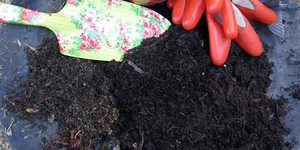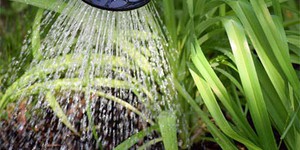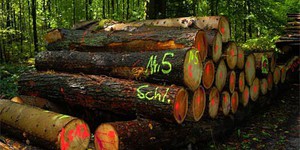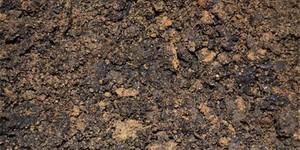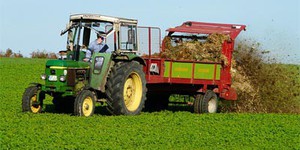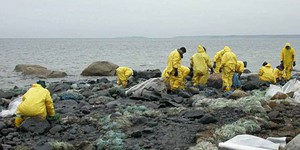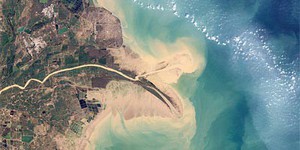Others Like “Oil Spills” (top 20 results)
|
Make your own fertile soil using kitchen scraps, manure, leaves, grass clippings, and other compostable materials. Which materials make the best compost? How does the amount of nitrogen change the rate at which the compost forms? How does a 'hot' compost pile compare to a 'cold' compost pile, or how does traditional composting compare to worm composting, or vermiculture?
Figure 1. Different composting methods yield different soils. In this picture, the soil on the…
Read more
Some plants use a lot of water, and some are very drought-tolerant. Drought-tolerant grasses are good for water conservation because they require less water to grow and stay green. How much less water do they need? Which types of grass are drought-tolerant? You can buy different types or brands of grass seed at your nursery that claim to be drought-tolerant. Grow them in a container and then starve for water after they are established. Which brands die out first? You can conduct a similar…
Read more
The conversion of forested to unforested areas has been occurring since humans began to impact and change their environments during the agricultural revolution. Recently deforestation has become a global problem, particularly for developing industrial countries and countries with very large populations. You can use satellite mapping resources to investigate the connection between urbanization, population growth and deforestation. You can also investigate the connection between deforestation…
Read more
The sustainability of our planet's resources ultimately depends upon our actions as citizens. How much we drive, what we eat, whether we have pets, and whether we recycle are all individual actions that affect the sustainability of the Earth's resources. Learn how ecological footprinting works and figure out how big your footprint is. How big is your family's footprint? Your school? A local business? Can you propose ways to increase or decrease the size of your ecological footprint? Develop…
Read more
The element lead is a neurotoxin that is particularly dangerous to young children. Among other uses, lead compounds were common paint additives until being phased out for safer titanium-based additives beginning in the 1960's. Lead compounds were also added to gasoline to prevent engine knocking, until being phased out beginning in the 1970's. Although paint and gasoline sold today no longer contain lead, soil can have contamination from older sources of lead, such as paint from old…
Read more
Many people routinely use fertilizer for crops, gardens, and lawns. What people don't know is that each time they apply fertilizer, the fertilizer seeps through the soil into the water table. This can eventually lead to the contamination of a local water source, like a stream, pond, lake, bay, or ocean. This is an especially big problem for agricultural practices that frequently use large amounts of fertilizer on fields that are connected by irrigation channels. The run-off of fertilizer…
Read more
How is geology important for our energy resources? Coal, oil, and natural gas are formed by geological processes over millions of years. Certain geological formations can indicate a reservoir of coal, oil, or natural gas. Also, geothermal processes can be used as an energy resource. How are these formations identified? How are the resources extracted? You can use the National Geospatial Program to access, view, and download information from geospatial databases containing a broad spectrum…
Read more
Global warming is how scientists describe the gradual warming of our global climate. Scientists think that the trend towards global warming can be attributed to the build up of greenhouse gases in the earth's atmosphere from industrialization. Another problem is deforestation, as we remove plants and trees from the environment to meet a high demand for lumber or by clear cutting fields for farming and urbanization. By removing trees from the earth's environment, are we changing how greenhouse…
Read more
Have you ever seen news coverage or other pictures of an oil spill in the ocean and wondered how all of that oil could be cleaned up? Oil spills can devastate wildlife by covering them with oil, and they can damage our precious water resources by contaminating them with oil. Part of the problem of dealing with oil spills is that the oil can be challenging to clean up. In this science project, you will test the absorptivity of different materials (called sorbents) to discover which ones are best…
Read more
Silt is a fine sediment that collects on the bottoms of rivers, streams and lakes. The natural process of the decay of organisms into the water can lead to the production of silt at the bottom of a lake. Silt can be a rich source of nutrients for fish and bottom dwellers like crayfish. However, it can also be introduced by unnatural processes. One problem for rivers, lakes and streams is the buildup of excess fine sediment introduced by industry. Because it often contains harmful chemicals it…
Read more
|
Explore Our Science Videos
DIY Mini Drone Part 1: Build Your Drone
How to Build a Unicorn Art Bot
Colorful Melting Ice Ball Patterns - STEM Activity


